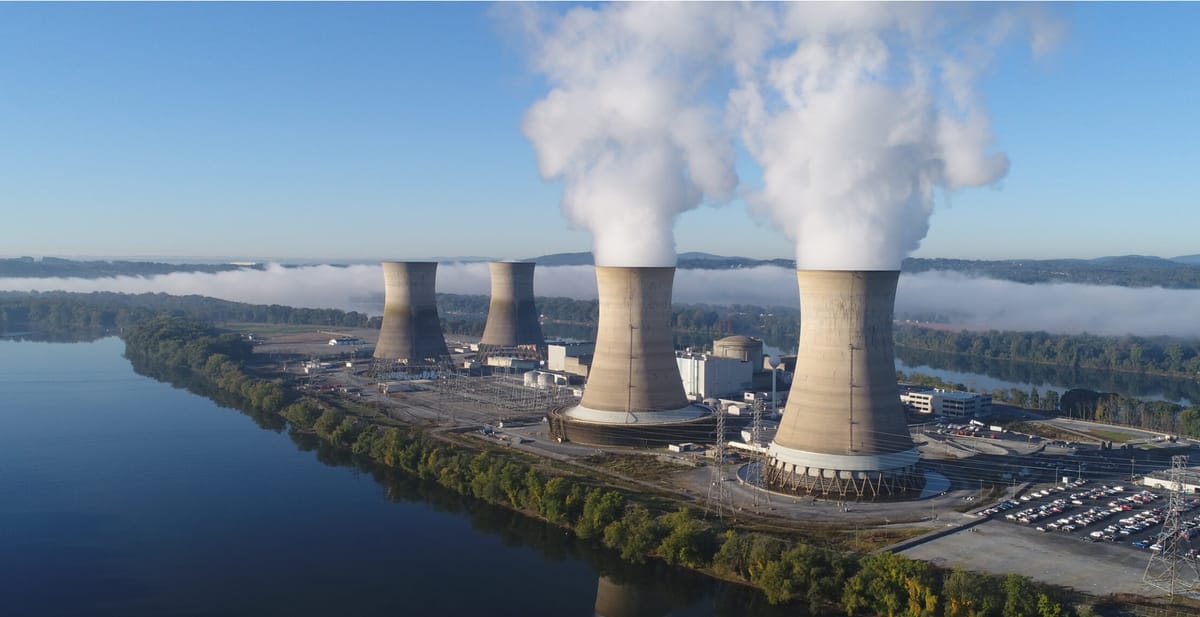
Constellation Energy has announced plans to restart the Three Mile Island nuclear plant in Pennsylvania to meet Microsoft's growing power demands for AI-driven data centers. The company will invest $1.6 billion to reopen the facility, which has been dormant since 2019, with operations expected to resume by 2028.
The 835-megawatt reactor (enough to power 700,00 homes) will be refurbished and renamed the Crane Clean Energy Center. Microsoft has committed to a 20-year power purchase agreement, securing all of the plant's output to fuel its expanding data center operations across the Midwest and East Coast. This will be Microsoft's first dedicated, 100% nuclear facility for its operations.
Three Mile Island is infamous for a partial meltdown in 1979 and becoming the site of the worst nuclear accident in U.S. history. The actual site of the accident, known as Unit 2, is being dismantled. However, the other reactor at the site actually continued safe operations until its closure in 2019 due to economic challenges.
The revival of Three Mile Island, symbolizes a broader resurgence of interest in nuclear energy. Joseph Dominguez, Constellation's CEO, stated, "This was the site of the industry's greatest failure, and now it can be a place of rebirth."
The decision to restart Three Mile Island comes amid growing interest in nuclear power, driven by increasing energy demands and climate change concerns. Tech companies, facing surging power needs for artificial intelligence and data centers, are turning to nuclear energy as a carbon-free, reliable power source.
This agreement aligns with Microsoft's ambitious carbon-free electricity goals. The company aims to run all its global data centers on clean energy by 2025 and become carbon negative by 2030. Microsoft's strategy involves a multi-technology approach, combining nuclear power with its extensive 34-gigawatt contracted renewable energy portfolio across 24 countries. The company is also exploring innovative agreements for hydro, solar, and wind power, demonstrating its commitment to a diverse and sustainable energy mix.
Bobby Hollis, Microsoft’s Vice President for Energy, emphasized the partnership’s role in the company’s goal to achieve carbon negativity by 2030. “This nuclear energy will fuel our data-center expansion in key regions, supporting our AI-driven initiatives with reliable, clean power,” Hollis stated.
The project faces several challenges, including regulatory approvals, equipment refurbishment, and staffing. Constellation will need to replace the reactor's main power transformer and restore its turbines and cooling systems. Constellation will self-fund the project, forgoing state or federal support to expedite the process.
Some local residents and environmental groups remain opposed to the reopening, citing safety concerns and memories of the 1979 accident.
Pennsylvania lawmakers welcomed the announcement, highlighting the economic and environmental benefits. “This will transform the local economy and presents a rare opportunity to power our economy with reliable clean energy,” said Tom Mehaffie, a Republican state representative.
As demand for AI-powered services surges, tech giants like Microsoft and Amazon are increasingly turning to nuclear power to meet their clean energy goals. This trend could breathe new life into an industry that has seen numerous plant closures over the past decade.
As the project moves forward, it will likely fuel ongoing debates about the role of nuclear power in addressing climate change and meeting growing energy demands in the tech sector.

